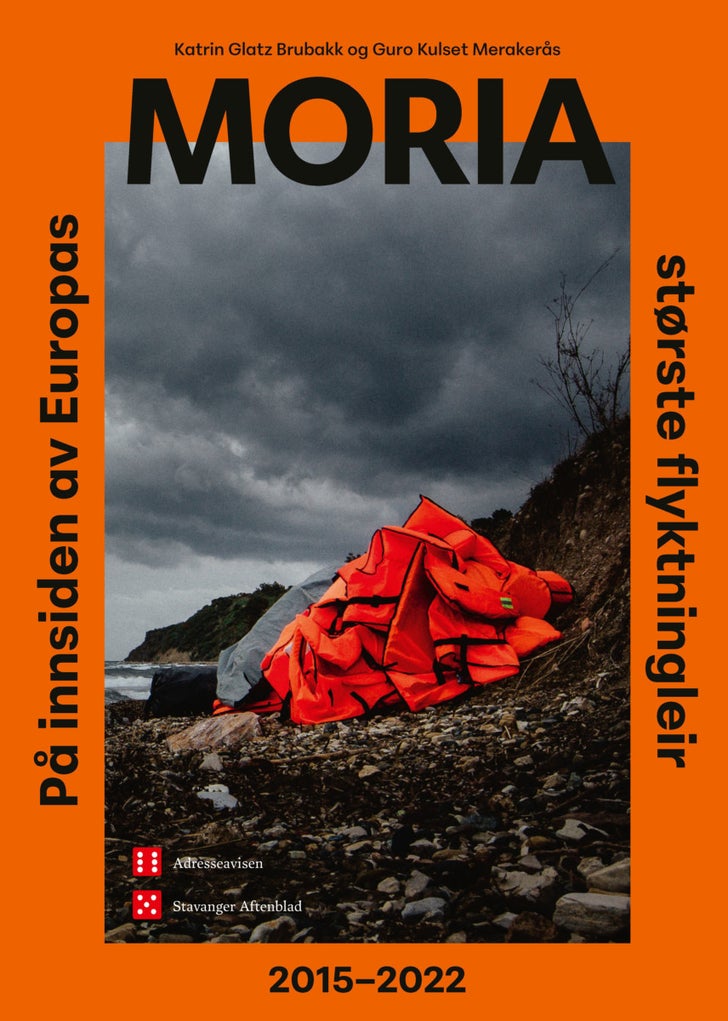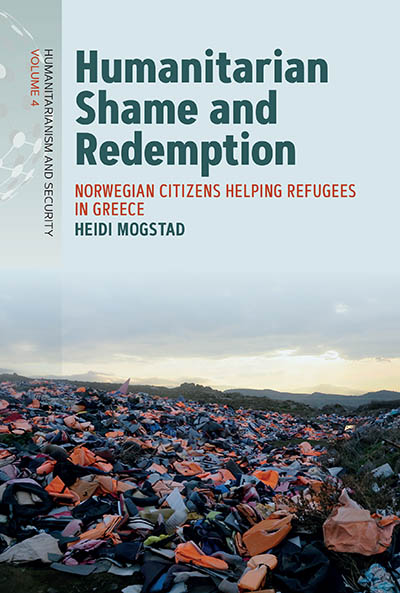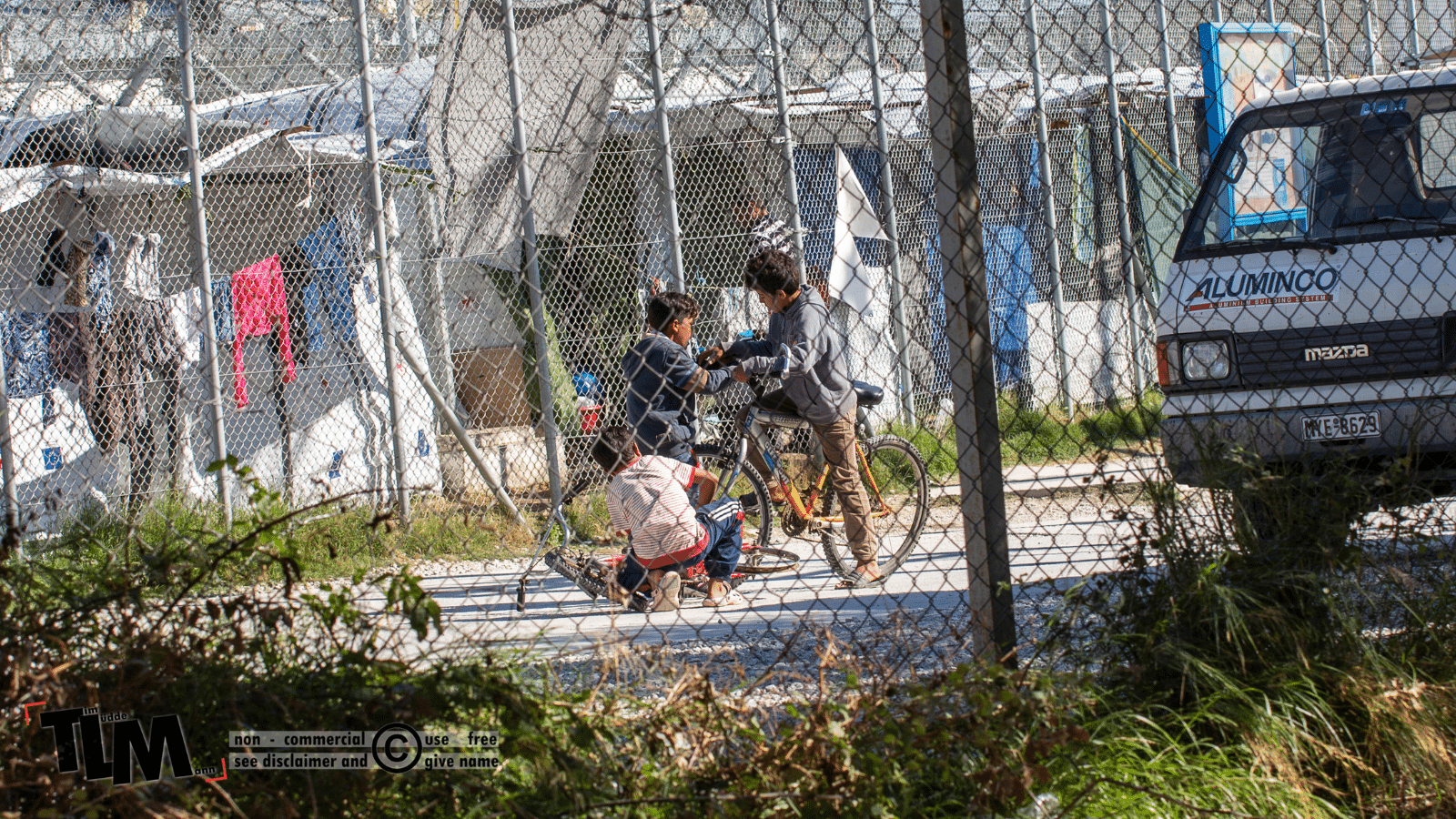Moria refugee camp on the Greek island of Lesvos has come to symbolise the failure of modern European refugee policy. After the notorious camp burned to the ground in September 2020, a new and supposedly safer and temporary camp was built to house refugees seeking asylum in Europe. Three years on, how is life in the ‘new Moria’?
In this episode of Talking Humanitarianism, Heidi Mogstad talks to psychologist for Doctors Without Borders, Katrin Glatz Brubakk, about her recent mission to Lesvos and impressions from assisting children and adults in the so-called Moria 2.0.
Katrin describes the increasing isolation and surveillance experienced by people living in the camp and examines the gendered harms and short- and long-term psychological impact of being contained, constantly on alert and feeling unwanted. Together Heidi and Katrin also discuss the increasing criminalisation of humanitarian work, European exceptionalism and humanitarian racism.
Listen on our website below, Spotify and Apple. Please be aware this episode discusses the topics of suicide and sexual abuse.
 Katrin Glatz Brubakk is a child psychologist specialising in trauma and Assistant Professor at the Norwegian University of Science and Technology (NTNU). Katrin is an experienced field worker with Doctors Without Borders, where she has worked with refugees in Greece and Egypt. Katrin teaches externally about experiences of working in the field, mental health in refugee populations, cultural differences in psychological work and trauma-based care. Together with journalist and author Guro Kulset Mekerås, Katrin has written the book Moria 2015-2022: Inside Europe’s largest refugee camp (Press, 2023). Currently available in Norwegian.
Katrin Glatz Brubakk is a child psychologist specialising in trauma and Assistant Professor at the Norwegian University of Science and Technology (NTNU). Katrin is an experienced field worker with Doctors Without Borders, where she has worked with refugees in Greece and Egypt. Katrin teaches externally about experiences of working in the field, mental health in refugee populations, cultural differences in psychological work and trauma-based care. Together with journalist and author Guro Kulset Mekerås, Katrin has written the book Moria 2015-2022: Inside Europe’s largest refugee camp (Press, 2023). Currently available in Norwegian.
 Heidi Mogstad is a Post-Doctoral Researcher at the Chr. Michelsen Institute in Bergen, Norway, where her research explores people’s lived experiences and contestations of border policies, humanitarianism and war. Heidi has a PhD in social anthropology from the University of Cambridge. Her doctoral fieldwork followed a Norwegian volunteer organisation’s humanitarian and political work at home and abroad in Moria and other refugee camps in Greece for 18 months. Her forthcoming book builds on this research and is titled Humanitarian Shame and Redemption: Norwegian Citizens Helping Refugees in Greece (Berghahn Books 2023).
Heidi Mogstad is a Post-Doctoral Researcher at the Chr. Michelsen Institute in Bergen, Norway, where her research explores people’s lived experiences and contestations of border policies, humanitarianism and war. Heidi has a PhD in social anthropology from the University of Cambridge. Her doctoral fieldwork followed a Norwegian volunteer organisation’s humanitarian and political work at home and abroad in Moria and other refugee camps in Greece for 18 months. Her forthcoming book builds on this research and is titled Humanitarian Shame and Redemption: Norwegian Citizens Helping Refugees in Greece (Berghahn Books 2023).
